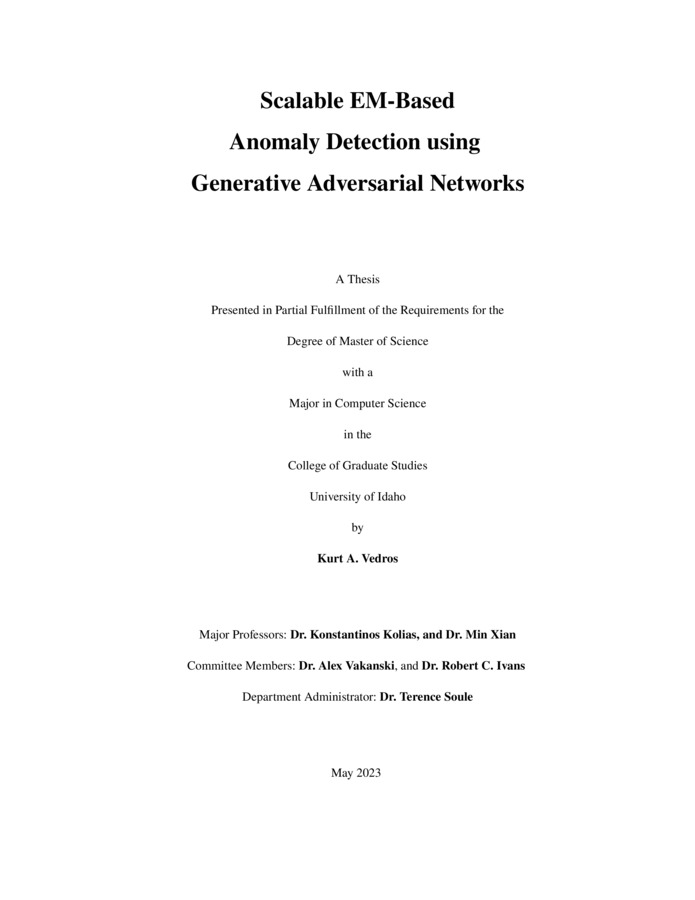Scalable EM-Based Anomaly Detection using Generative Adversarial Networks
Vedros, Kurt A. (2023-05). Scalable EM-Based Anomaly Detection using Generative Adversarial Networks. Theses and Dissertations Collection, University of Idaho Library Digital Collections. https://www.lib.uidaho.edu/digital/etd/items/vedros_idaho_0089n_12619.html
- Title:
- Scalable EM-Based Anomaly Detection using Generative Adversarial Networks
- Author:
- Vedros, Kurt A
- ORCID:
- 0000-0001-5668-0664
- Date:
- 2023-05
- Embargo Remove Date:
- 2023-12-08
- Keywords:
- Anomaly Detection Electromagnetic Signals Generated Signals Generative Adversarial Networks Side-channel Analysis Synthetic Signals
- Program:
- Computer Science
- Subject Category:
- Computer science
- Abstract:
-
Embedded devices are omnipresent in modern networks, including those facilitating mission-critical applications. However, due to their constrained nature, novel mechanisms are required to provide external, and non-intrusive defenses. Among such approaches, one that has gained traction is based on analyzing the emanated electromagnetic (EM) signals. Unfortunately, one of the most neglected challenges of this approach is the manual gathering and fingerprinting of the corresponding EM signals. Indeed, even simple programs are comprised of numerous branches, making the fingerprinting stage extremely time-consuming, and requiring the manual labor of an expert. To address this issue, we first considered manually synthesizing EM directly from machine code. However, such an approach requires an exhaustive capturing process not for entire execution paths but rather the ``building blocks" of those. In this context, ``building blocks" can be defined as instruction sequences. For this reason, we propose proposed an automated, data-driven approach for generating EM signals from machine code using Generative Adversarial Networks (GANs). In comparison to the previous approach, synthetically generating EM signals also removes the need for an elaborate and error-prone fingerprinting stage while requiring a fraction of captured signals. Preliminary, small-scale experimental evaluations indicate that our GANs-based approach provides near to perfect detection accuracy against code injection attacks when considering the full signal.
- Description:
- masters, M.Engr., Computer Science -- University of Idaho - College of Graduate Studies, 2023-05
- Major Professor:
- Kolias, Konstantinos; Xian, Min
- Committee:
- Vakanski, Alex; Ivans, Robert C; Soule, Terence
- Defense Date:
- 2023-05
- Identifier:
- Vedros_idaho_0089N_12619
- Type:
- Text
- Format Original:
- Format:
- application/pdf
- Rights:
- In Copyright - Educational Use Permitted. For more information, please contact University of Idaho Library Special Collections and Archives Department at libspec@uidaho.edu.
- Standardized Rights:
- http://rightsstatements.org/vocab/InC-EDU/1.0/

